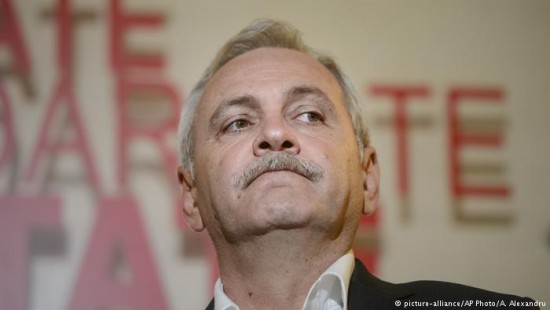Romania: Ruling Party Leader Faces New Corruption Probe
Romanian anti-corruption prosecutors opened a new criminal investigation into the chairman of the ruling party on suspicion that he misused European Union funds.
The prosecutors’ office said in a statement that Liviu Dragnea is suspected of official misconduct for setting up an organized crime group and forging documents to illicitly obtain EU funds. Eight others are being investigated in the same case.
Although he leads the Social Democratic party, Dragnea cannot be premier due to a 2016 conviction for vote-rigging.
The latest allegations concern misuse of funds from 2001-2012 when he headed the Teleorman county council in southern Romania.
Dragnea, who says cases against him are politically motivated, appeared before anti-corruption prosecutors Monday. He later denied wrongdoing and said he would not resign.
The European Anti-Fraud Office, OLAF, said in a statement that it had uncovered evidence that 21 million euros ($24.4 million) was fraudulently paid to officials and others from the European Regional Development Fund for road construction in Romania. It completed an investigation into alleged wrongdoing last year and asked Romania to recover the funds.
Dragnea, also the speaker of parliament’s lower house, is already on trial in a separate official misconduct case.
In January, his Social Democrats attempted to decriminalize some abuse-of-office offenses, sparking the biggest protests since the fall of communism.
In October, the party submitted a bill to parliament to revamp the judiciary.
20 November 2017
Disclaimer: All views, opinions and accounts included in the RAI News Section are those of the authors; their inclusion does not imply official endorsement or acceptance by RAI. The News Section reflects the selection of topics of informative value to the organization and its stakeholders. Its content is taken from press/media sources and does not in any way reflect official RAI Secretariat policy. RAI Secretariat is not responsible for possible inaccuracies in media reports.

